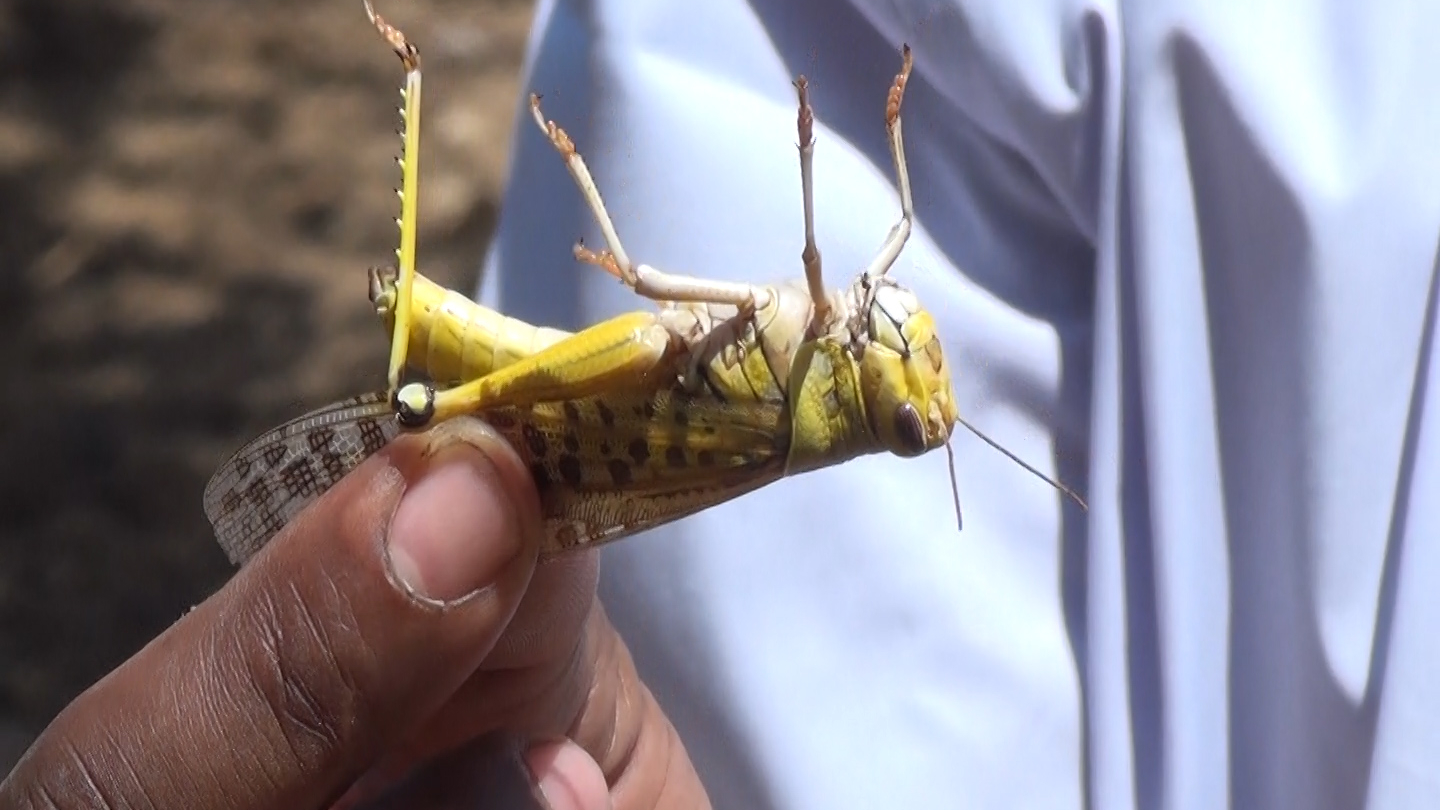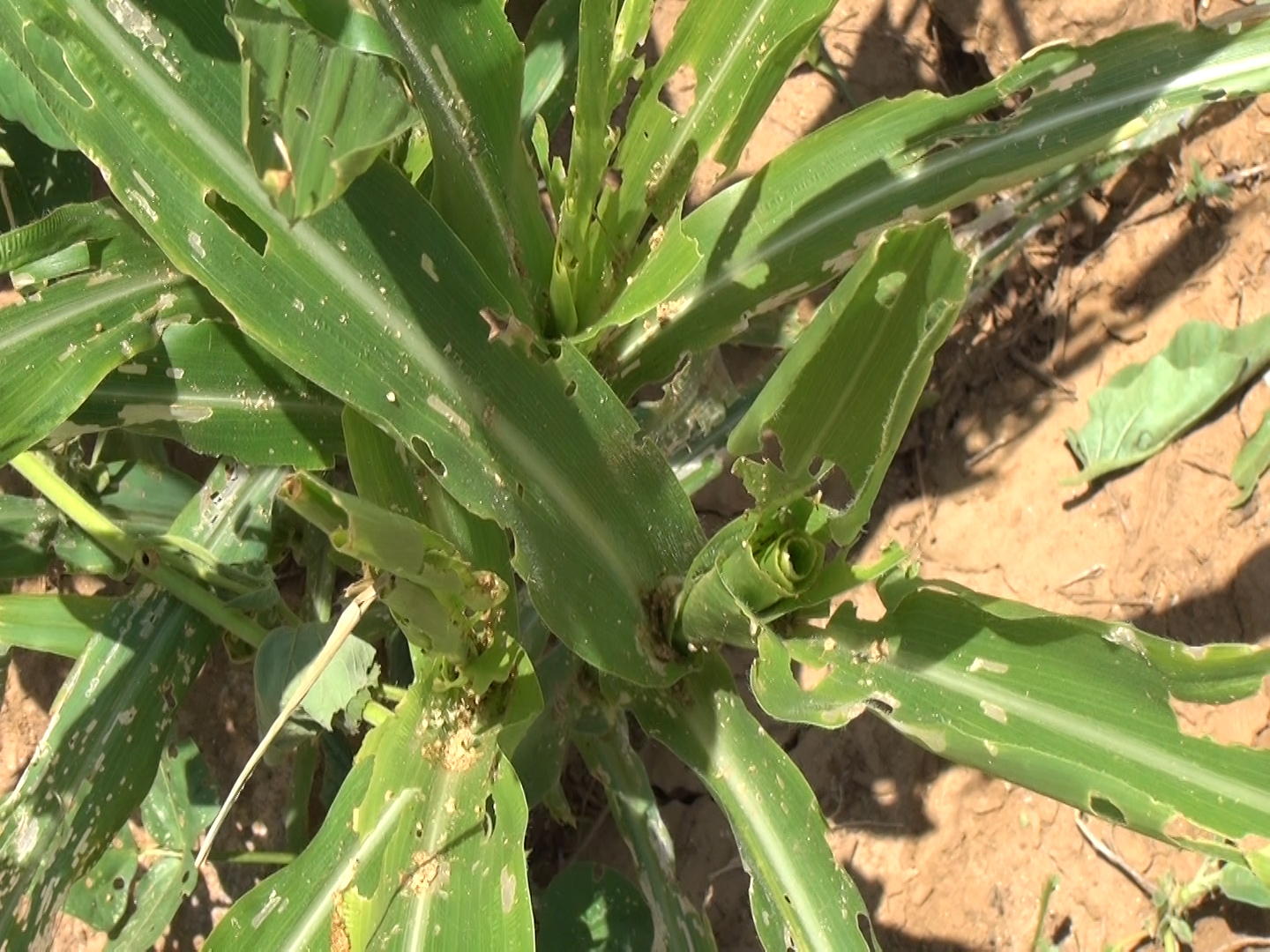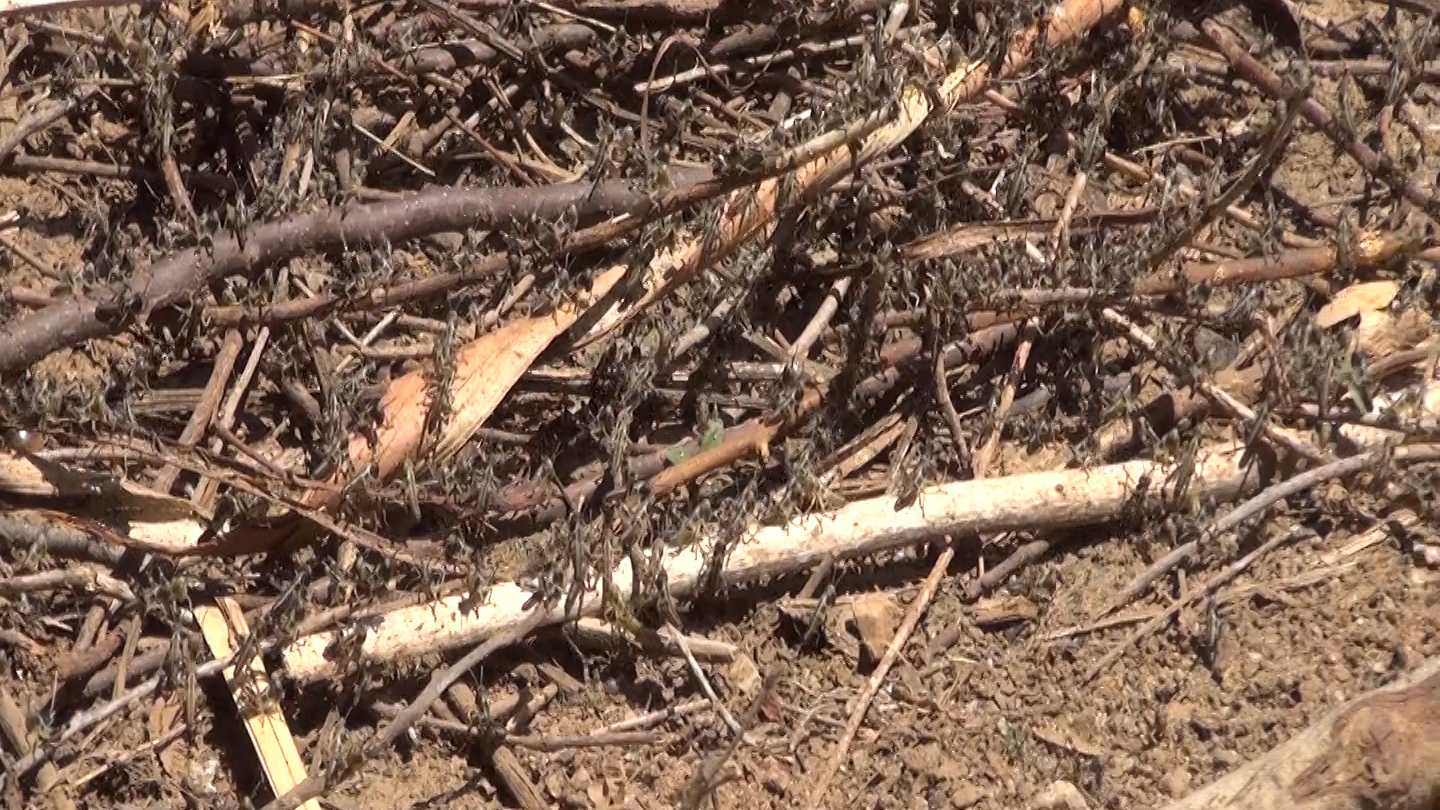
An Ethiopian government official holds a mature desert locust in Southern Ethiopia. Coletta Wanjohi/CGTN
An Ethiopian government official holds a mature desert locust in Southern Ethiopia. Coletta Wanjohi/CGTN
Ethiopia is concerned that the persistent locust invasion in parts of the country will affect its food production.
The early rains that come between February and May are important for Ethiopia's crops. But locusts have disrupted farmers' plans.
Awuno Menka, a farmer in Luka in South Omo, Southern Ethiopia says this would have been an ideal time for planting but things did not go as planned.
"Two massive swarms landed in our area and destroyed my entire maize crop," Menka said. "Although they were later controlled, more swarms are coming from Kenya. I fear for the next cropping season."
The swarms feed on any vegetation they find. They have affected the Afar, Amhara, Oromia, Somali, Tigray and Southern regions of Ethiopia.
The UN Food and Agriculture Organization (UNFAO) says in some parts of the southern region, locust swarms have laid their eggs and new hoppers are hatching.
"This will cause a serious threat for this season as the farmers have just started preparing their land. And they are expecting to harvest in about two to three months," explains Fatouma Seid, the UNFAO representative to Ethiopia, "so this will cause serious food security problems for this community, in the coming few weeks to two months."
The locust invasion in Ethiopia began in July, 2019.

A plant destroyed by locusts in Southern Ethiopia. Coletta Wanjohi/CGTN
A plant destroyed by locusts in Southern Ethiopia. Coletta Wanjohi/CGTN
"We have to act immediately, otherwise it is very difficult," said Mulualem Mersha, the coordinator of desert locust control operation in Gamugota Zone. "It will be a big threat for the next planting season for this area."
Mersha said that the community is aware of the effects of locusts and members are using local means to try and combat the invasion.
"They are trying to control the locust spread by beating the newly emerging hoppers with sticks. We are also spraying the ground with chemicals on the locusts," he said.
The UN Food and Agriculture Organizations is assisting Ethiopia fight the locust invasion. It is working with the Desert Locust Control Organization for Eastern Africa, a regional organization for integrated pest and vector management, to ensure food security in Eastern Africa.
"We are supporting the government to conduct this control operation through provision of additional aircraft and pesticides," said Fatouma Seid. "We must control here because if we do not manage to control the crops here, the food security of the population will be affected in the next harvest."

UNFAO says locusts laid eggs in parts of Southern Ethiopia and fresh hoppers are now emerging. Coletta Wanjohi/CGTN
UNFAO says locusts laid eggs in parts of Southern Ethiopia and fresh hoppers are now emerging. Coletta Wanjohi/CGTN
Captain George Mwangi, a pilot from the Desert Locust Control Organization for Eastern Africa, says controlling the swarms in Ethiopia is tough because the country is vast.
In addition, Mwangi says some swarms have affected areas where people live, hence aerial spraying cannot be employed.
"Technically, maybe I will do (spray) a minimum of 1000 hectares everyday," Mwangi said. "We are determined to make sure that our countries will be food sufficient, our pastoralists will have enough pastures for their animals, and livelihoods will continue."
FAO says the challenge is bigger than Ethiopia. Djibouti and Eritrea have also been affected, with swarms reported in Somalia, Kenya, South Sudan, Uganda and Tanzania.
It has made an emergency appeal for at least 135 million U.S. dollars for the eight Eastern African countries, but has so far received only 52 million U.S. dollars.
The World Meteorological Organization, a UN agency that covers weather, climate and water resources, says the desert locusts are expected to continue breeding and spreading during the coming months due to favorable climatic conditions.